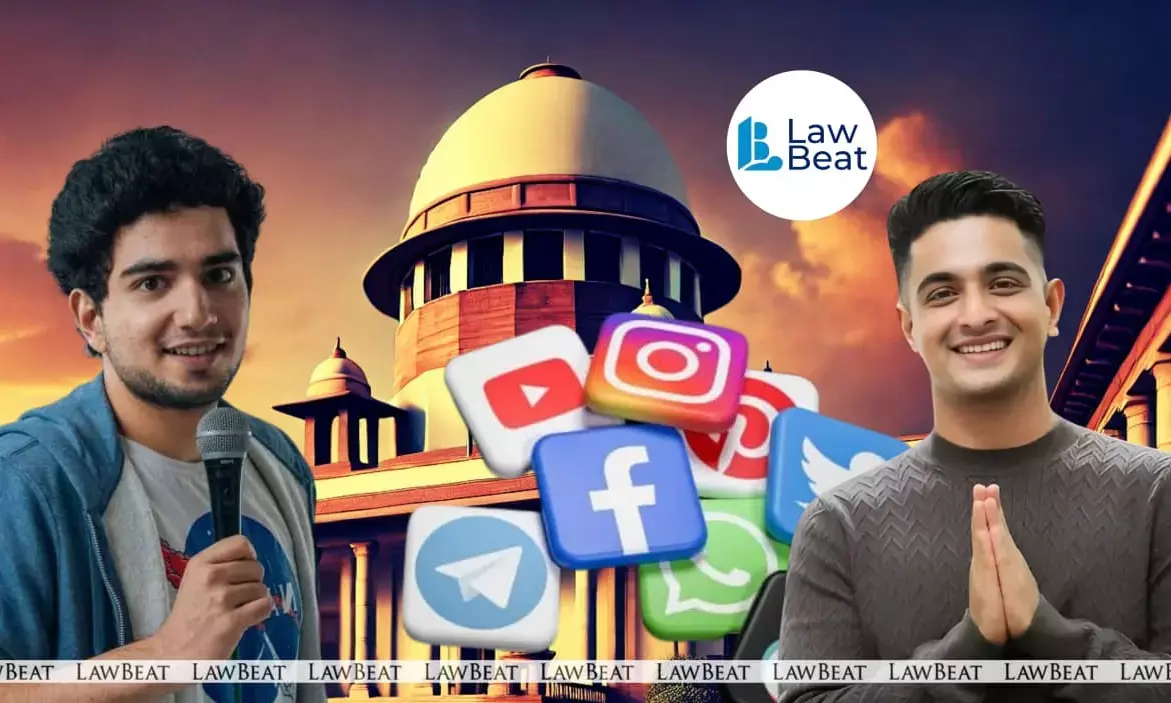Centre Tells SC: Guidelines For Influencers Will Safeguard Parties’ Rights Without Hurting Dignity or Respect

Influencer Guidelines are being deliberated in Supreme Court with Centre assuring balance
The Centre, through the Attorney General has assured the Supreme Court that guidelines for social media influencers would strike a balance between accountability and individual dignity.
Appearing before a Bench of Justice Surya Kant and Justice Joymalya Bagchi, Attorney General (AG) R. Venkataramani said that the draft guidelines would be prepared by the Ministry of Information and Broadcasting (MIB) in consultation with the News Broadcasters & Digital Association (NBDA) and other stakeholders.
He clarified that the framework would safeguard the rights of all parties involved, without compromising on dignity, honour, or respect.
Currently, India lacks a bespoke regulatory framework specifically targeting influencers and digital content creators. Traditional regimes; like the Information Technology (Intermediary Guidelines and Digital Media Ethics Code) Rules, 2021 and the Cinematograph Act, govern online intermediaries and traditional media, respectively.
However, they fall short of addressing the nuances of influencer-driven commercial content, particularly when it borders on harmful or discriminatory expression.
What the Supreme Court Proposed?
1. No Blanket Protection for Commercial Speech
The Court firmly held that content created for profit, such as by influencers, does not enjoy the same constitutional protection of free speech, unlike purely expressive or journalistic content.
2. Public Apologies & Affidavits as Immediate Measures
In the case involving mockery of persons with disabilities, including by figures like Samay Raina and Ranveer Allahbadia, the Court directed influencers Ranveer Allahabadia, Samay Raina & others to:
- Issue public, unconditional apologies on their channels.
- Submit affidavits detailing how they intend to raise awareness about disability rights.
3. Draft Guidelines In Consultation with Stakeholders
After deliberation on regulating influencer content after the Ranveer Allahabadia controversy, it was clarified that the Ministry of Information & Broadcasting (MIB) would prepare broad-based guidelines in active consultation with the News Broadcasters & Digital Association (NBDA), among other relevant stakeholders. The court also stated that the noise surrounding the issue should be ignored, while pointing out, "There are many free advisors in the market, ignore them," Justice Surya Kant was noted saying.
4. Sensitivity to Vulnerable Groups
Bench observations highlighted that humor or commentary should not come at the cost of human dignity, particularly for vulnerable groups such as persons with disabilities, women, children, and senior citizens. The Court underlined that insensitive commercial content cannot be shielded in the name of free speech.
The Supreme Court was hearing a plea arising from an intervention application filed by a non-profit working for individuals affected by Spinal Muscular Atrophy (SMA), a rare genetic disorder. The organisation accused stand-up comedians Samay Raina, Vipul Goyal, Balraj Paramjeet Singh Ghai, Sonali Thakkar, and Nishant Jagdish Tanwar of abusing the freedom of speech by making derogatory remarks about persons suffering from SMA.
During the proceedings, the Bench had underscored that freedom of speech and expression does not extend to content created solely for commercial gain. “When you are commercialising free speech, you should also bear in mind not to hurt the sentiments of certain sections of society,” Justice Bagchi remarked.
The Court emphasized that the guidelines “shall not be merely a reaction to any particular incident but broad and wide enough to cater to future needs, keeping in view the modern-day challenges posed by the advancement of technology in communication.”
As the matter moves forward, the Supreme Court is expected to hear further submissions on November 21, 2025, once the draft guidelines and associated frameworks have been placed before it.
It is to be noted that on May 5, the Apex Court had directed the Commissioner of Mumbai Police to issue notice to comedian Samay Raina and others to be present before the court, while also warning that coercive action will be taken against them in case they fail to appear.
On April 21, the Supreme Court took strong exception to comedian Samay Raina’s alleged mockery of the exorbitant treatment cost for spinal muscular atrophy (SMA), stating that such ridicule could not be passed off as humour or satire when it demeans persons with disabilities.
